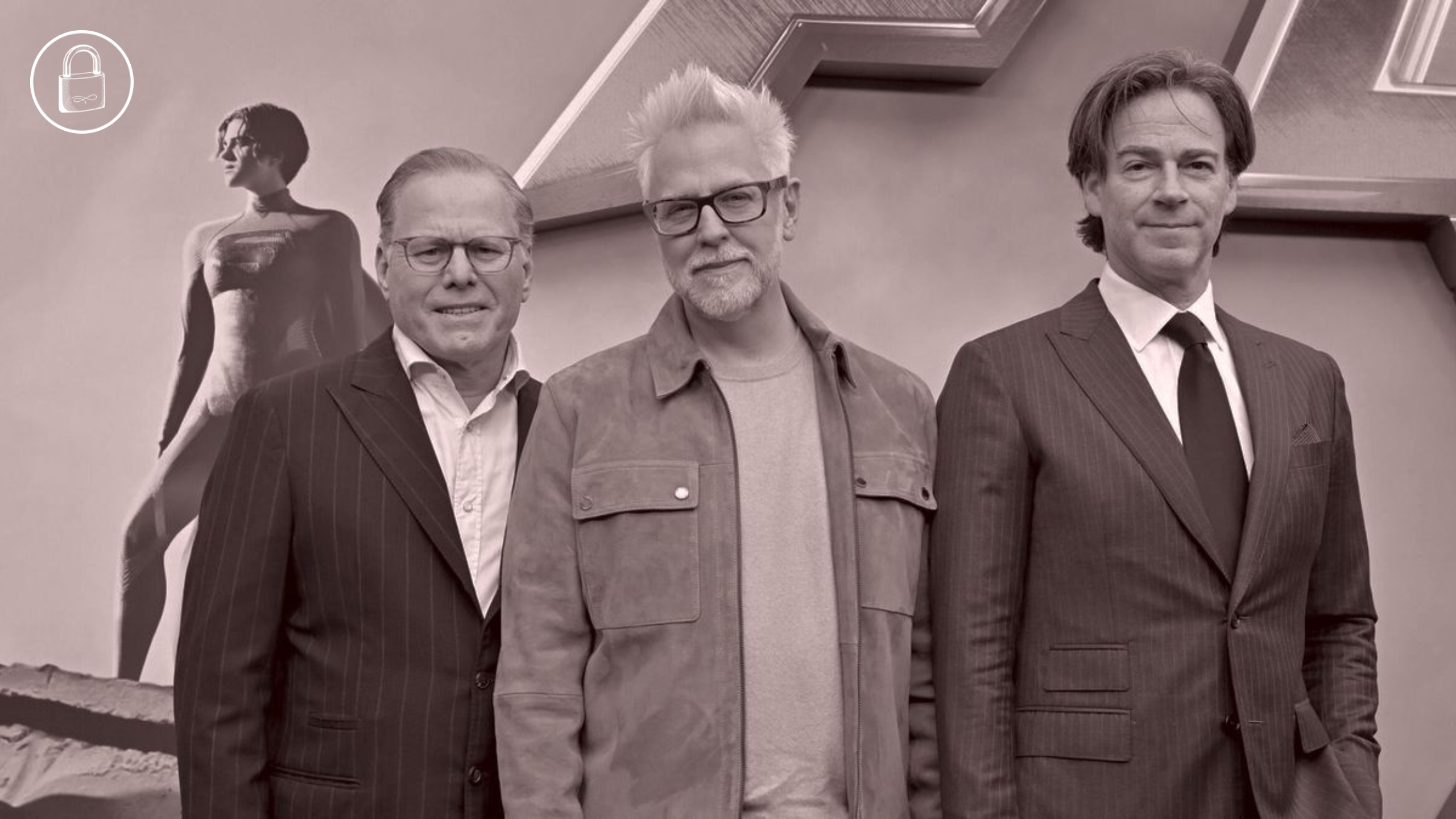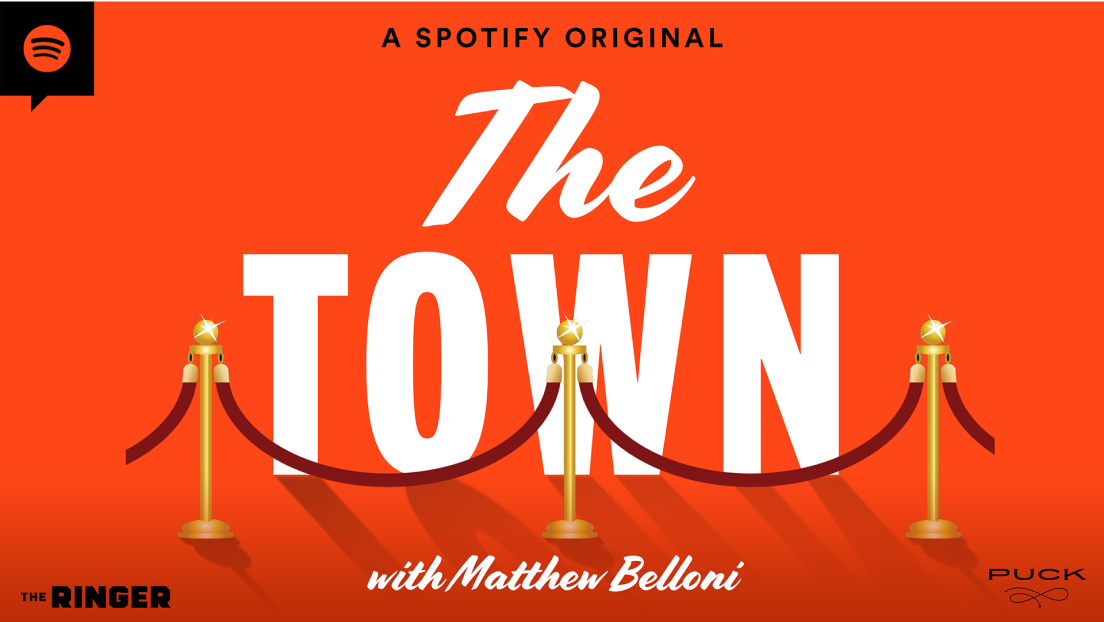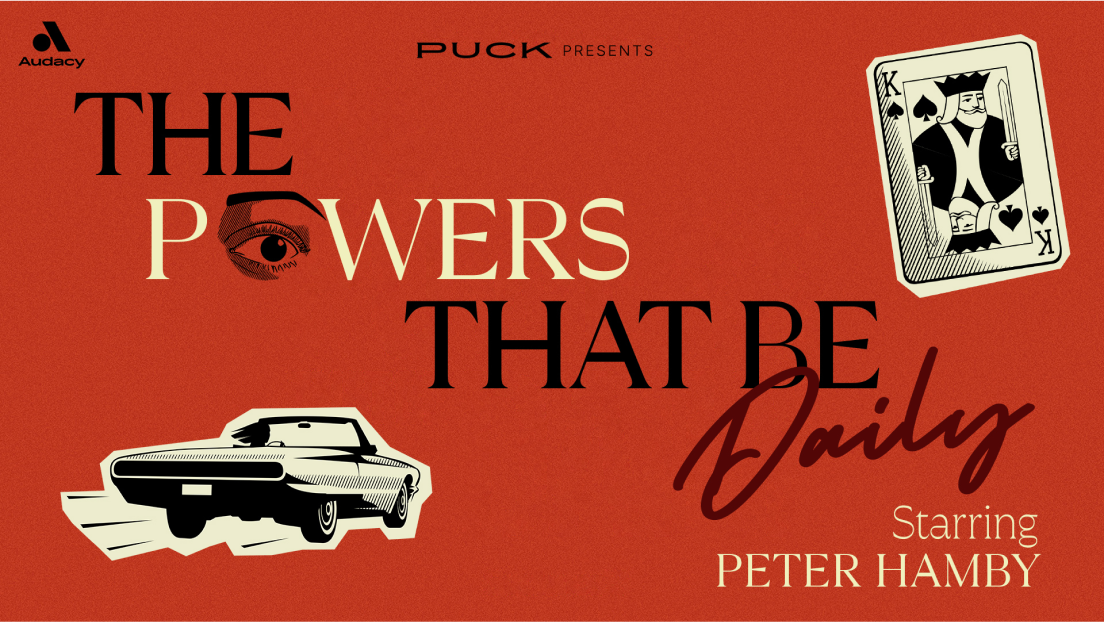
|
PREVIEW VERSION
|
|
|
|
Trump Tariff Theater, Roger
Goodell’s Game Clock, Sotheby’s Gilded Age
|
Welcome back to The Daily Courant, your afternoon guide to Puck’s best new reporting.
First up today, Eriq Gardner carefully examines Marc Toberoff’s blockbuster copyright lawsuit against Warner Bros., which could derail international distribution of Superman, James Gunn’s anticipated summertime tentpole. The real twist? If Toberoff prevails, the ramifications could be legal kryptonite for other studios, too…
Plus, below the fold: Sarah Shapiro digs into Nike’s new-old game plan to reclaim market dominance, before revealing how Trump’s tariffs will ripple through the fashion industry. Julie Davich rifles through the aristocratic treasures featured in Sotheby’s mega auction of the Aso O. Tavitian estate. And John Heilemann relays Hawaii Senator Brian Schatz’s
message for shell-shocked Dems struggling to find their footing in Trump II.
Meanwhile, on the pods: Matt Belloni rings up the leaders of the Directors Guild of America on The Town to discuss the most pressing topics facing their profession. On The Varsity, John Ourand connects with ESPN’s Don Van Natta Jr. to assess the NFL’s booming business and the fate of commissioner Roger
Goodell. And on The Powers That Be, Bill Cohan joins Peter Hamby for a spirited tête-à-tête encompassing Wall Street’s response to Trump’s tariffs against Mexico, Canada, and China.
|
|
|

|
Eriq Gardner
|
|
A bombshell lawsuit from longtime Warner Bros. nemesis Marc Toberoff claims that the studio has lost foreign rights
to the Superman character—and, if Toberoff prevails, the decision could affect much more than this summer’s planned relaunch of the franchise. Indeed, most of the headlines have centered on the ramifications for James Gunn’s anticipated July 11 tentpole, Superman, which is intended to jumpstart the studio’s revamped DC universe. But as Eriq outlines, Friday’s complaint could be legal kryptonite for other studios, too. If Toberoff wins the case, the estate of Superman co-creator
Joseph Shuster likely won’t be the only one to take advantage of the fact that—in territories including the U.K., Canada, and Australia—25 years after an author’s death, copyrights revert to their estate.
Read Now
|
|
|

|
Sarah Shapiro
|
|
In 2020, Phil Knight disciple Mark Parker stepped down as C.E.O. of Nike and was replaced by John Donahoe, an
unflinchingly qualified executive and company board member. Among Donahoe’s first decisions was to end the company’s distribution relationship with several key partners and go all-in on D.T.C. On paper, it was a logical idea, but the execution was rushed and flawed. Today, Nike’s market cap is down to $113 billion, and Donahoe is out, replaced by Elliott Hill, a former company lifer. Sure, Nike is still way larger than everyone else, but the athletic apparel behemoth is pinning its comeback
on a playbook they’ve been running since the ’80s: innovation through imitation. Is it too late to recapture cultural mindshare?
Read Now
|
|
|

|
Sarah Shapiro
|
|
In this punchy dispatch, Sarah outlines three major ways Trump’s tariffs will reshape the fashion retail industry.
First, the de minimis exception is toast, forcing retailers to rethink sales forecasts, pricing, strategy, etcetera. Second, strong brands with loyal followings will have an easier time passing costs onto customers. Finally, retailers will have to diversify their supplier base to stay competitive in an evolving market. Sarah also expects retailers will become more transparent about tax implications and downstream economics, rather than allow customers to wonder whether they’re going to
be impacted by customs or taxes when ordering from overseas. Who knows, maybe the de minimis exception will end up on a campaign poster one day…
Read Now
|
|
|

|
Julie Brener Davich
|
|
As Sotheby’s specialist Dennis Harrington put it, the mega auction of the Aso O. Tavitian collection offers a
“history of the antiques trade.” The sales, which will take place at Sotheby’s this week, contain more than 800 lots of Georgian mahogany furniture, pietra dura tables, Persian rugs, French silk panels, Baroque bronzes, gilt mirrors, Chinese export porcelain, silver, and some 40 paintings. As Julie notes, Tavitian, the late software entrepreneur and philanthropist, was the kind of collector you rarely encounter anymore: self-made but low-profile, with an omnivorous appetite for
aristocratic treasures. “His collection was like family to him,” said Candace Beinecke, Tavitian’s longtime lawyer and friend.
Read Now
|
|
|

|
John Heilemann
|
|
In the face of Trump’s blizzard of executive actions—some of them purely performative, some legally dubious at
best—the Republican majorities in the House and Senate have shown little appetite for pushback. Meanwhile, Democrats, befitting their minority status in both chambers, have expressed plenty of desire to mount a resistance, but have been at a loss regarding how to do it. That’s why it was notable that, in the wake of Trump and Elon Musk’s bid to shut down USAID, Hawaii Senator Brian Schatz vowed to place holds on Trump’s State Department nominees until the agency was up and running again. In
this wide-ranging conversation, Schatz advises his party against chasing “every flying monkey Donald Trump hurls at us,” and urges his colleagues to focus on those Trump actions that “do real harm.”
Read Now
|
|
|

|
Matthew Belloni
|
|
Matt is joined by Lesli Linka Glatter and Russell Hollander, the president and executive director, respectively, of the
Directors Guild of America, to talk about some of the most important topics for directors in the entertainment industry. They discuss how the DGA manages its relationship with SAG-AFTRA and the WGA; how the A.I. landscape has changed since its last C.B.A., including the use of A.I. in the film The Brutalist; why the TV market is hurting directors; and what the DGA’s role is in the Justin Baldoni–Blake Lively lawsuit. Matt finishes the show with a prediction about Super Bowl commercials.
Listen Now
|
|
|

|
John Ourand
|
|
ESPN’s Don Van Natta Jr. joins John for a wide-ranging conversation on the NFL’s booming business, where soaring
ratings and sponsorship deals underscore the league’s financial dominance—highlighted by the Dallas Cowboys’ staggering $10 billion valuation. They also tackle some of the league’s prime concerns, including the perceived officiating problems, before discussing the power dynamics of owners like Jerry Jones and speculating on Roger Goodell’s future as commissioner.
Listen Now
|
|
|

|
Peter Hamby
|

|
William D. Cohan
|
|
Bill Cohan joins Peter for a deep dive into Trump’s tariff threats against Mexico, Canada, and China. Bill argues
that these threats are largely performative, crafted to score political wins rather than serve any real economic purpose. Then they discuss the inevitable market volatility, and whether, despite any potential short-term gains, these tariffs will ultimately prove inflationary and harmful to U.S. relations with key allies.
Listen Now
|
|
|
Need help? Review our FAQ page or contact us for assistance. For brand partnerships, email ads@puck.news.
You received this email because you signed up to receive emails from Puck, or as part of your Puck account associated with . To stop receiving this newsletter and/or manage all your email preferences, click here.
|
Puck is published by Heat Media LLC. 107 Greenwich St, New York, NY 10006
|
|
|
|




_01JKBQRB43NYH93448NG5MFFAF.png)
_01JKBRJ02G70AB52S7KN7WGFGV.png)
_01JKBQRCAWBGQM387KAYBSE6S4.png)
_01JKBQRBQZJFP86JCKH9KS92PG.png)





















